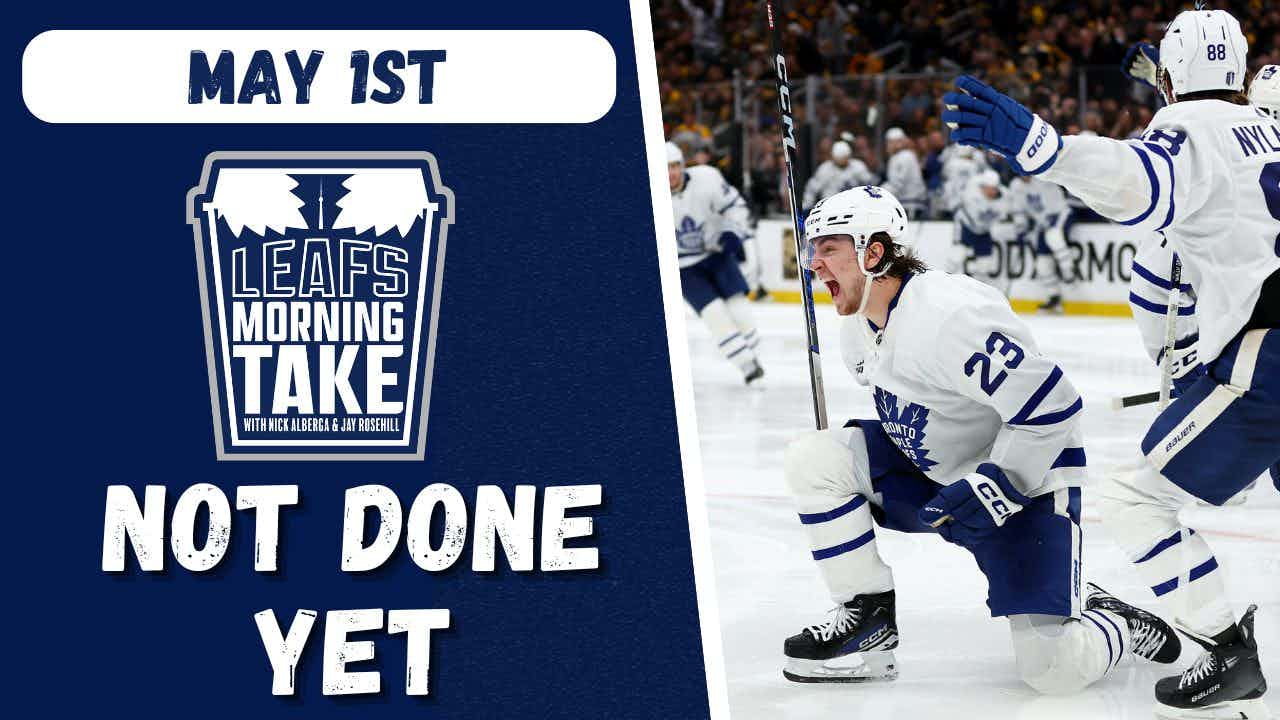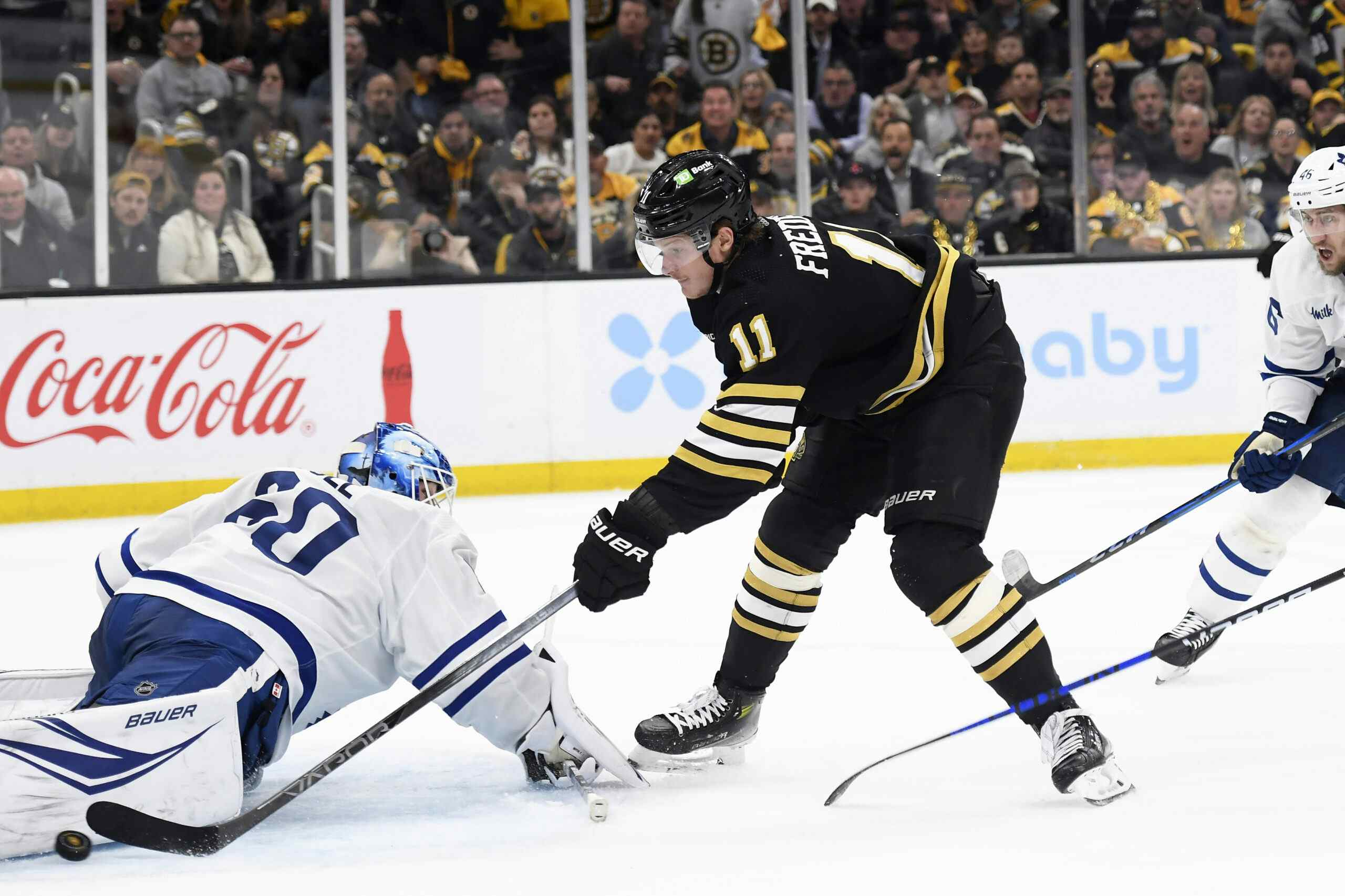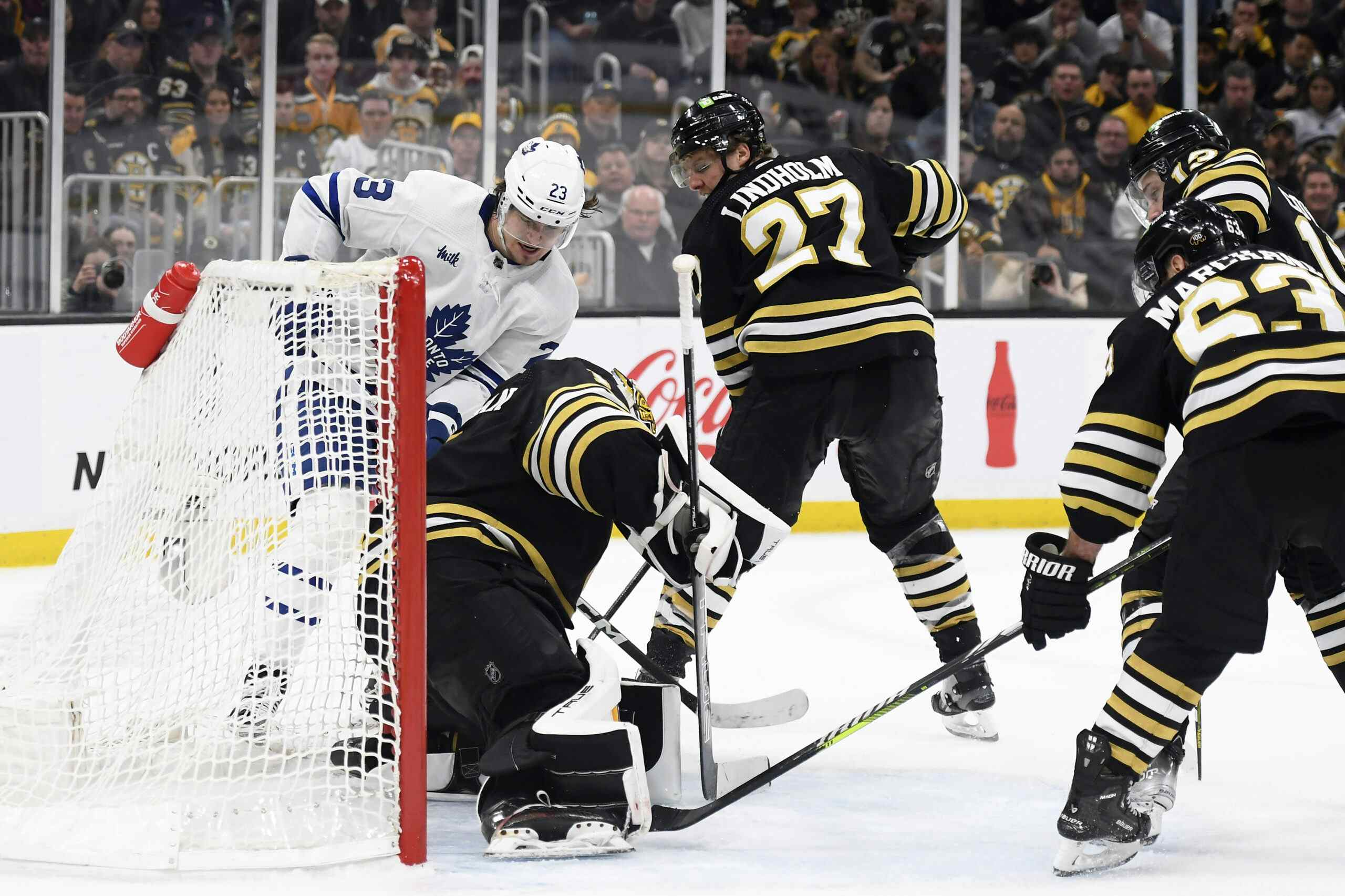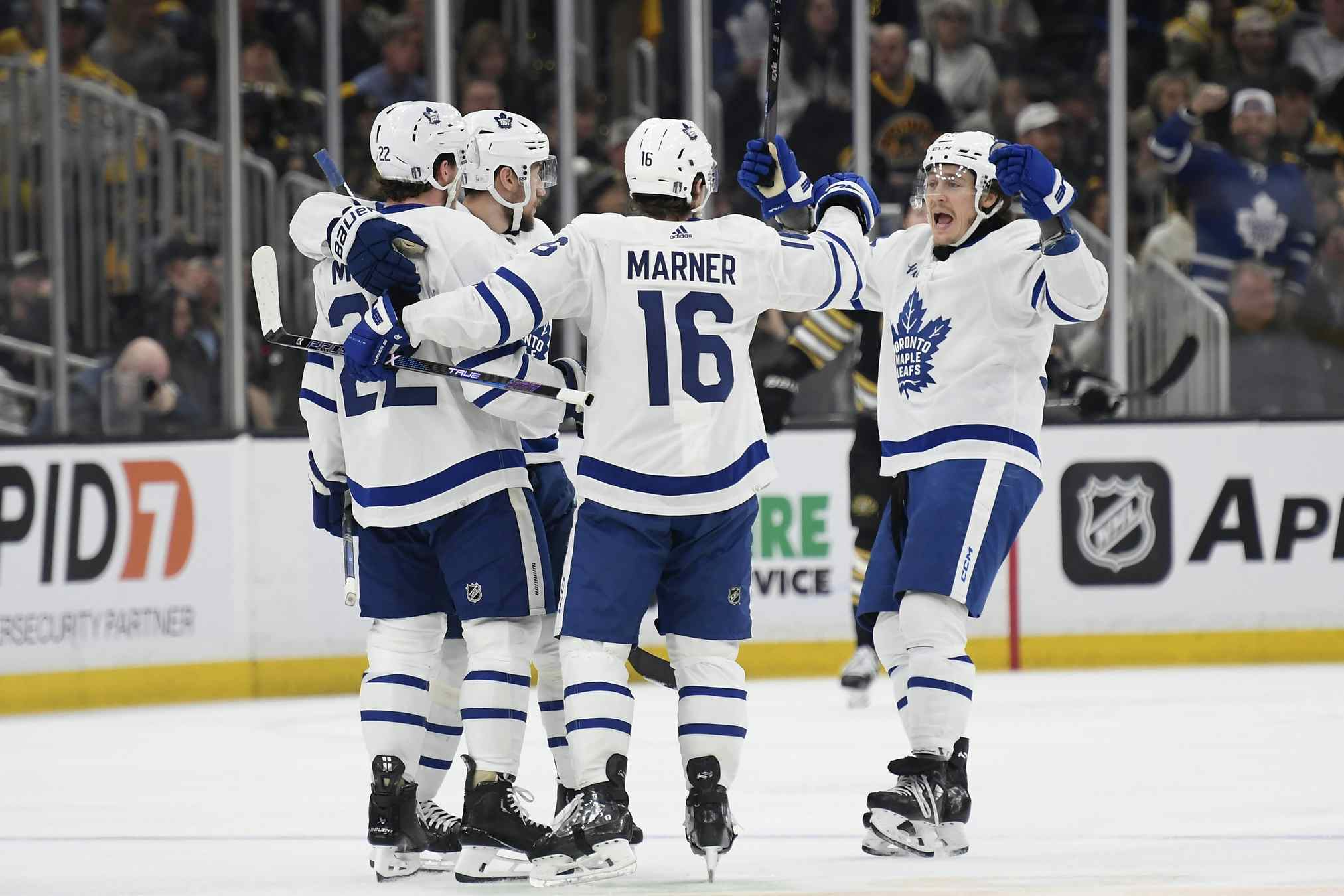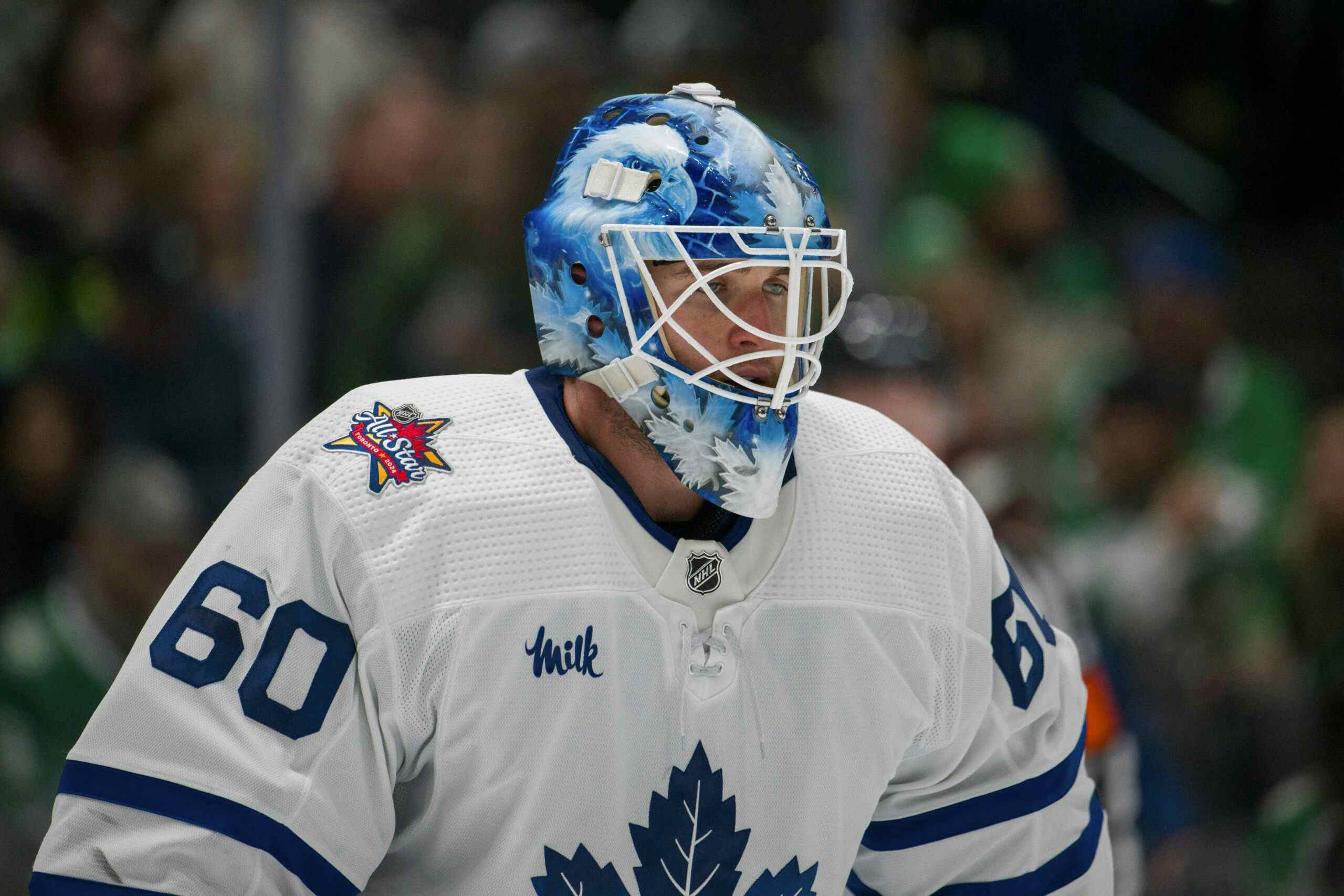Benoit Pouliot, an attractive option for Toronto, will be a UFA on July 5
By Cam Charron
10 years ago
Here’s a bit of a shocker. The Tampa Bay Lightning have told Benoit Pouliot that they won’t qualify him, meaning that Pouliot will head to unrestricted free agency on July 5.
This is a player that the Toronto Maple Leafs should immediately begin negotiating with and sign to a cheap depth contract for a couple of years. Perhaps seen as a bit of a redemption contract. After being drafted fourth overall in 2005, Pouliot has not lived up to expectations, bouncing around between four different organizations, and potentially going to sign with his fifth this summer.
He has never scored 20 goals. He has never scored 35 points. He has never played 1000 minutes in a season, and he is probably going to be a very undervalued second- or third-line winger. At this point, a team would be wise to forget about the fact that Pouliot never lived up to the hype as a fourth overall pick in the Sidney Crosby draft and focus on what it is Pouliot has done over the last four seasons or so.
For one, Pouliot scores more than most depth players. Among players with 1500 minutes played over the last three seasons, Pouliot is 36th in points per 60 minutes, and 27th in goals per 60 minutes. Those are even strength totals, and indicative of a player who does very well for himself in the minutes he’s given: minimal at evens, he’s a tertiary option on the powerplay (he’s averaged just :55 seconds a game over the last three seasons).
| Relative Corsi | Corsi ON | Corsi Rel QoC | Ozone Start % | |
|---|---|---|---|---|
| 2010 | 7.3 | 0.0 | 0.775 | 50.4% |
| 2011 | 10.5 | 11.3 | -0.231 | 51.6% |
| 2012 | 3.9 | 10.7 | 0.262 | 57.7% |
| 2013 | 8.6 | 1.1 | 0.290 | 49.2% |
He played generally sheltered competition his last season in Montreal (2011) and saw some sheltered offensive zone starts during his only year on Boston’s third line (2012) but overall, faced higher than average competition and didn’t get a huge advantage or disadvantage zone shift-wise. He’s managed to be in the plus column in both Corsi On and Relative Corsi throughout the last four seasons of play.
So while you can generally expect third liners to score below average and have below zero possession totals, Pouliot keeps his head above water, which makes him an intriguing player, particularly for Toronto, a team that has already lost two Bottom Six forwards and will probably be without Clarke MacArthur to start next season.
Pouliot is a suitable replacement.
The next is the fancy graph. Basically, you look at the possession totals for any given player, when he’s with Pouliot and when he isn’t with Pouliot. 50% indicates that the two teams had an equal split of shot attempts at even strength both on and off the ice.
Since Pouliot has played on three different teams in three years, I’m going to look at his most common forward linemates and one defenceman from his last three teams. For 2010 and 2011, I’ll put the two years together:

The Tampa bit of the graph can probably be worth discounting since that team has been a puck-possession horror show since the team ditched the 1-3-1 early in the 2011-12 season, but the difference between Vincent Lecavalier with and without Benoit Pouliot is hilarious. Still, it’s not like Pouliot’s quality of competition or zone starts was significantly lower than Lecavalier’s (.298 Corsi Rel QoC and a 51.9% Ozone start rate) so he didn’t play easier minutes. He just played fewer for a team that got killed every night on the shot clock.
I find it tough to believe that Pouliot was the sole difference in turning Lecavalier from an obvious buyout candidate into a useful possession player, but I’m quite comfortable in saying that Pouliot generally drives play. Seven of the nine players fared better with Pouliot on the ice than not, and it’s worth noting that the Boston Bruins’ third line got into some trouble all season without having a suitable replacement for Pouliot. Chris Kelly’s production dipped, as did Rich Peverley’s (although they had high PDO numbers in 2012) but they had to contend this season with a mix of Daniel Paille, Chris Bourque, Jordan Caron, and then eventually Jaromir Jagr and Tyler Seguin in the playoffs. For whatever reason, Kelly and Peverley’s Corsi dipped without Pouliot in the lineup.
To me, he fits the bill for a third tour of duty in the Northeast Division, either alongside Mikhail Grabovski on a second line or with the freshly-acquired Dave Bolland on the third, whose possession game fell off the last two seasons under heavy competition. I don’t want to look at him, simplistically say “oh, he has good Corsi, he must be a good player” but when you look at Pouliot from a bunch of different angles, he looks like a player who can be productive in the right role.
Final point to make: I think teams can find some value in picking up players that were former high picks, never lived up to expectations, and became merely “productive” rather than “stars”. Again, I’ll point to the piece that shows that Bottom Six forwards tend to come from the first round. The New York Islanders got great seasons last year out of Michael Grabner and Thomas Hickey, two picks made by non-playoff teams that were eventually found themselves on waivers.
Wojtek Wolski was a good option before going to the KHL… Phoenix went to the Conference Finals a year ago with Marc-Antoine Pouliot, Rostislav Klesla, and Gilbert Brule on their roster. There are some pretty good examples of productive players that nobody wanted simply because they ended up on the wrong half of an NHL roster that scouts expected them to but I think it’s important to ignore a player’s draft position or talent that never materialized, and instead focus on what a player brings to the table.
Pouliot makes a lot of sense in Toronto. Now that Dave Nonis has gone out and brought in two French Canadiens in Jonathan Bernier and Frederick Gauthier, perhaps one more French guy couldn’t hurt.
*and no, I am not Benoit Pouliot’s agent.
Recent articles from Cam Charron

